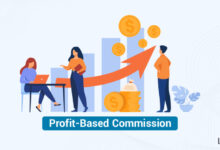Commission Based Sales Agency: 7 Powerful Strategies to Skyrocket Revenue
Looking to scale your sales without the overhead? A commission based sales agency might be the ultimate growth hack. This model aligns incentives, reduces risk, and drives performance—perfect for startups and scaling businesses alike.
What Is a Commission Based Sales Agency?

A commission based sales agency operates on a performance-driven model where sales professionals earn income solely through commissions from closed deals. Unlike traditional agencies that charge retainers or hourly fees, these agencies only get paid when they deliver results. This creates a powerful alignment between client goals and agent motivation.
How It Differs From Traditional Sales Models
Traditional sales teams often come with fixed salaries, benefits, and overhead costs. In contrast, a commission based sales agency eliminates upfront labor costs. You’re not paying for effort—you’re paying for outcomes. This makes it an attractive option for companies with limited budgets but high growth ambitions.
- Traditional agencies: Retainer-based, fixed costs, broader service scope
- Commission based sales agency: Pay-for-performance, scalable, focused on closing deals
- Hybrid models: Mix of base salary + commission, often used in-house
“The beauty of a commission based sales agency is that your success is their paycheck. There’s no stronger alignment than that.” — Sales Strategy Expert, Jane Rivera
Key Players in the Ecosystem
Several types of players operate within this space. Independent agents work solo, often specializing in niche markets. Boutique agencies focus on specific industries like SaaS or real estate. Larger networks, such as SalesAgents.com, connect businesses with vetted commission-only reps across geographies.
These agencies typically handle lead generation, outreach, negotiation, and closing—all without charging a dime unless a sale is made.
Top 7 Benefits of Hiring a Commission Based Sales Agency
Choosing a commission based sales agency isn’t just about saving money—it’s about leveraging a strategic advantage. Here are seven compelling reasons why more companies are making the switch.
1. Cost Efficiency and Reduced Financial Risk
One of the biggest advantages is cost control. Instead of committing to monthly retainers or full-time salaries, you only pay when a sale closes. This is especially valuable for early-stage startups or businesses testing new markets.
- No fixed payroll expenses
- No need for office space or equipment
- Lower customer acquisition cost (CAC) over time
According to a Forbes Business Council report, companies using commission-only models saw a 30% reduction in initial sales spending compared to traditional hiring.
2. Performance-Driven Motivation
When income depends entirely on results, agents are naturally more motivated to close deals. There’s no room for complacency—every call, email, and meeting must move the needle.
This performance culture often leads to higher activity levels, faster follow-ups, and better conversion rates. Since their livelihood depends on success, top performers thrive in this environment.
3. Scalability Without Overhead
Need to enter a new region or launch a product line? A commission based sales agency allows you to scale quickly without hiring a full team. You can onboard agents in different time zones, languages, or industries almost instantly.
- Scale up during peak seasons
- Test new markets with minimal investment
- Downsize easily without layoffs or severance
This flexibility is a game-changer for seasonal businesses or those in volatile industries.
4. Access to Specialized Expertise
Many commission based sales agencies specialize in specific sectors—think medical devices, B2B software, or luxury real estate. These agents bring deep industry knowledge, existing networks, and proven pitch strategies.
Instead of training a generalist, you get a domain expert who already understands your buyer’s pain points and decision-making process.
5. Faster Time to Market
Building an in-house sales team takes weeks or months. With a commission based sales agency, you can have agents actively selling your product within days.
They often come equipped with their own CRM tools, calling scripts, and lead databases. All you need to provide is training on your product and access to your sales collateral.
6. Built-In Accountability
Because payment is tied directly to results, there’s inherent accountability. Poor performers simply won’t survive—they’ll move on to opportunities where they can earn.
Agencies also tend to self-police. Top agents don’t want to be associated with underperformers, so there’s internal pressure to maintain standards.
7. Global Reach With Local Insight
Many commission based sales agencies operate internationally. This gives you access to local market experts who understand cultural nuances, pricing expectations, and regulatory environments.
commission based sales agency – Commission based sales agency menjadi aspek penting yang dibahas di sini.
For example, selling enterprise software in Germany requires a different approach than in Brazil. A local agent knows how to navigate these differences effectively.
How to Choose the Right Commission Based Sales Agency
Not all agencies are created equal. Picking the wrong partner can waste time, damage your brand, or even alienate prospects. Here’s how to make a smart choice.
1. Define Your Sales Goals and KPIs
Before reaching out to any agency, clarify what success looks like. Are you aiming for $500K in new revenue? 100 qualified leads per month? Expansion into three new states?
Clear goals help you evaluate whether an agency’s track record aligns with your objectives. Ask for case studies or references in your industry.
2. Evaluate Their Industry Experience
Experience matters. An agent who’s sold HVAC systems won’t necessarily excel at selling AI-powered analytics platforms.
Look for agencies that have a proven history in your niche. Ask questions like:
- Have you sold similar products before?
- What was your average deal size?
- How long did it take to close deals?
3. Review Their Lead Generation Strategy
Some agencies rely solely on cold calling. Others use LinkedIn outreach, email campaigns, or even paid ads to generate interest.
Make sure their lead gen methods align with your brand voice and compliance standards. For instance, if you’re in healthcare, you’ll want someone familiar with HIPAA and data privacy regulations.
4. Assess Communication and Reporting
Transparency is key. A good commission based sales agency should provide regular updates—weekly reports, call recordings, pipeline reviews.
Ask what tools they use (e.g., HubSpot, Salesforce, Close CRM) and how often they’ll sync with your team. Poor communication can lead to duplicated efforts or missed opportunities.
5. Check References and Past Performance
Always ask for client testimonials or speak to past partners. Reach out to references and ask:
- Did they deliver on promises?
- Were leads qualified?
- Would you hire them again?
You can also check platforms like Clutch.co or UpCity for verified reviews of sales agencies.
Common Challenges and How to Overcome Them
While the benefits are significant, working with a commission based sales agency isn’t without risks. Being aware of potential pitfalls helps you mitigate them early.
1. Misaligned Incentives
Some agents may push for quick closes on low-value deals to earn commissions faster. This can hurt long-term customer satisfaction or churn rates.
Solution: Structure your commission plan to reward quality over quantity. For example:
- Higher commissions for longer contracts
- Bonuses for customer retention after 90 days
- Penalties for churn within the first 60 days
2. Lack of Brand Representation
Since agents aren’t employees, they may not feel as invested in your brand reputation. Poor communication or aggressive tactics can damage your image.
Solution: Provide comprehensive onboarding, brand guidelines, and approved messaging. Require agents to use your templates and undergo training before going live.
3. Inconsistent Performance
Performance can vary widely between individuals. One agent might close five deals a month, while another struggles to book meetings.
Solution: Implement a trial period (e.g., 30–60 days) with clear KPIs. Use data to identify top performers and phase out underperformers.
commission based sales agency – Commission based sales agency menjadi aspek penting yang dibahas di sini.
4. Data Ownership and Security
Who owns the leads and customer data? What happens if the agent leaves or joins a competitor?
Solution: Include clear clauses in your contract about data ownership, non-solicitation, and confidentiality. Use a shared CRM to maintain control over your pipeline.
Commission Structures: What Works Best?
The way you structure commissions can make or break the partnership. Let’s explore the most effective models used by successful commission based sales agencies.
1. Straight Commission Model
In this simplest form, agents earn a percentage of each sale—no base pay, no bonuses. Typical rates range from 10% to 30%, depending on industry and profit margins.
Best for: High-ticket items, experienced closers, short sales cycles.
2. Tiered Commission Structure
Agents earn increasing percentages as they hit milestones. For example:
- 10% on first $50K in sales
- 15% on next $50K
- 20% on anything above $100K
This incentivizes overperformance and rewards top producers.
3. Residual or Recurring Commissions
Common in subscription-based businesses, agents earn a smaller percentage (e.g., 5–10%) on renewals for a set period (e.g., 12–24 months).
This encourages agents to focus on customer fit, not just closing.
4. Hybrid Models (Commission + Bonus)
While not purely commission-based, some agencies offer bonuses for hitting team targets, upselling, or referrals.
Example: 10% commission + $500 bonus for every client who upgrades within 90 days.
5. Draw Against Commission (Optional)
Some agencies offer a recoverable draw—a temporary advance on future commissions. If the agent doesn’t earn enough, the agency recoups the difference.
Use cautiously: It can reduce urgency if not managed properly.
Real-World Success Stories
Let’s look at how real companies have leveraged a commission based sales agency to achieve explosive growth.
Case Study 1: SaaS Startup Scales to $2M ARR
A bootstrapped SaaS company offering project management tools for architects struggled to gain traction. After hiring a niche commission based sales agency specializing in AEC (Architecture, Engineering, Construction), they closed 47 new clients in six months.
Key factors:
- Agency had existing relationships with architecture firms
- Used targeted LinkedIn outreach + demo webinars
- Earned 15% commission per annual contract
Result: $2.1M in annual recurring revenue (ARR) within 10 months.
Case Study 2: Medical Device Company Expands Internationally
A U.S.-based medical device manufacturer wanted to enter the UK and German markets. Instead of opening offices, they partnered with two regional commission based sales agencies.
Each agency had local regulatory knowledge and hospital network access. They earned 12% per sale, with higher rates for multi-unit deals.
commission based sales agency – Commission based sales agency menjadi aspek penting yang dibahas di sini.
Result: Secured contracts with 14 hospitals in 8 months, generating €1.8M in revenue.
Case Study 3: E-Commerce Brand Boosts B2B Sales
An eco-friendly packaging brand wanted to sell to retailers but lacked B2B experience. They hired a commission based sales agency with a track record in sustainable consumer goods.
The agency used a tiered model: 10% on first order, 15% on repeat orders. They focused on trade shows, cold email, and retailer outreach.
Result: 32 new retail partners in 5 months, increasing B2B revenue by 220%.
How to Onboard a Commission Based Sales Agency for Maximum Impact
Even the best agency needs proper onboarding to succeed. Follow this step-by-step process to set them up for success.
1. Provide Comprehensive Product Training
Agents can’t sell what they don’t understand. Host live training sessions covering:
- Product features and benefits
- Target customer personas
- Objection handling scripts
- Competitive differentiators
Record sessions for future onboarding.
2. Share Sales Collateral and Tools
Equip agents with everything they need to sell effectively:
- Brochures, pitch decks, demo videos
- Email templates and LinkedIn scripts
- Access to a shared CRM (e.g., Salesforce, Pipedrive)
- Calendly link for scheduling demos
3. Establish Clear KPIs and Reporting Standards
Define what success looks like and how it will be measured. Common KPIs include:
- Number of calls/meetings per week
- Lead-to-opportunity conversion rate
- Average deal size
- Sales cycle length
Require weekly reports and hold bi-weekly syncs.
4. Create a Feedback Loop
Encourage agents to share market feedback—common objections, pricing concerns, feature requests. This intel is gold for product and marketing teams.
Use tools like Notion or Google Forms to collect structured feedback.
5. Monitor Performance and Optimize
Track performance monthly. Identify top performers and double down on what’s working. Adjust messaging, targeting, or commission structure if needed.
Remember: This is a partnership. The more you invest in their success, the more they’ll drive yours.
Future Trends in Commission Based Sales Agencies
The world of sales is evolving, and commission based sales agencies are at the forefront of innovation. Here’s what’s coming next.
1. AI-Powered Lead Matching
Platforms are emerging that use AI to match businesses with the most suitable commission-only agents based on industry, geography, and past performance.
Example: RepVue offers data-driven insights into sales rep performance and compatibility.
2. Blockchain for Transparent Commission Tracking
Smart contracts on blockchain can automate commission payouts when deals close, reducing disputes and administrative overhead.
Early adopters are testing this in real estate and SaaS affiliate programs.
commission based sales agency – Commission based sales agency menjadi aspek penting yang dibahas di sini.
3. Rise of Niche Micro-Agencies
Instead of large generalist firms, we’re seeing hyper-specialized micro-agencies focusing on single industries—like fintech, cannabis, or renewable energy.
These agencies offer deeper expertise and stronger networks.
4. Integration With Revenue Operations (RevOps)
Forward-thinking companies are integrating commission based sales agencies into their broader RevOps strategy—aligning them with marketing, customer success, and product teams.
This ensures a seamless customer journey from first touch to renewal.
5. Global Freelance Sales Networks
Platforms like Upwork and Toptal now feature vetted commission-only sales professionals. Businesses can hire on-demand reps for short-term campaigns or market tests.
This democratizes access to talent without long-term commitments.
What are the risks of using a commission based sales agency?
The main risks include inconsistent performance, brand misrepresentation, and data security concerns. However, these can be mitigated with clear contracts, proper onboarding, performance monitoring, and strong communication protocols.
How do I structure commissions fairly?
Fair commission structures balance motivation with profitability. Common approaches include straight commission (10–30%), tiered models, recurring commissions for subscriptions, and bonuses for upsells. Always align incentives with long-term business goals.
Can I use multiple commission based sales agencies at once?
Yes, many companies use multiple agencies to target different regions or customer segments. Just ensure there’s no overlap in territories or messaging to avoid conflict. Use a centralized CRM to manage all partners.
How long does it take to see results?
Most businesses see initial results within 30–60 days. Full ramp-up typically takes 90 days, depending on sales cycle length and product complexity. Provide consistent support during onboarding for faster traction.
Are commission based sales agencies better than in-house teams?
It depends on your goals. In-house teams offer more control and brand alignment. Commission based sales agencies provide cost efficiency, scalability, and performance-driven results. Many companies use both in a hybrid model.
Partnering with a commission based sales agency can transform your growth trajectory. From slashing costs to accessing expert closers, the benefits are clear. But success depends on choosing the right partner, structuring incentives wisely, and maintaining strong collaboration. When done right, this model delivers results that traditional sales teams often can’t match. Whether you’re launching a new product or entering uncharted markets, a performance-driven agency could be your secret weapon.
commission based sales agency – Commission based sales agency menjadi aspek penting yang dibahas di sini.
Further Reading:



